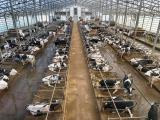Dec 22, 2004 (CIDRAP News) – Tests have confirmed that a man who worked on a Japanese farm during an outbreak of H5N1 avian influenza last February had Japan's first human case of avian flu, though he never became seriously ill, officials announced today.
The man was tested for the virus twice, and the second test showed an increase in antibodies, confirming infection, according to a report by Agence France-Presse (AFP). Four other people tested positive for antibodies but were tested only once; they were regarded has having had "highly possible" cases, the story said.
None of the five developed influenza, although the employee with the confirmed case did report a sore throat for a few days after taking antiviral medication, AFP reported. Four of the people worked at a poultry farm where the avian flu outbreak occurred. The fifth was a local government worker who helped disinfect the farm.
The five were not expected to pose a public health problem "as there is no possibility that they will develop such symptoms or infect other people," according to a government statement quoted by AFP.
Health ministry officials took several months to complete diagnosis of the human infection because they used extra care in the face of a lack of established rules for testing for H5N1, the story said.
A Japanese government research team said this H5N1 strain was virtually identical to strains found in South Korea, AFP reported. The agriculture ministry today banned poultry imports from South Korea until further notice.
The affected employees hadn't worn protective clothing, according to a story today by the Vietnam News Agency (VNA). That might have been due to attempts to cover up the outbreak, AFP reported.
Two people died last March in an apparent double suicide related to the outbreak, AFP said. The chairman of Asada Nosan Co., which owned the affected poultry farm, was found dead, along with his wife. In August, their son was sentenced to a 1-year jail term, which was suspended for 3 years, for failing to report the outbreak.




















